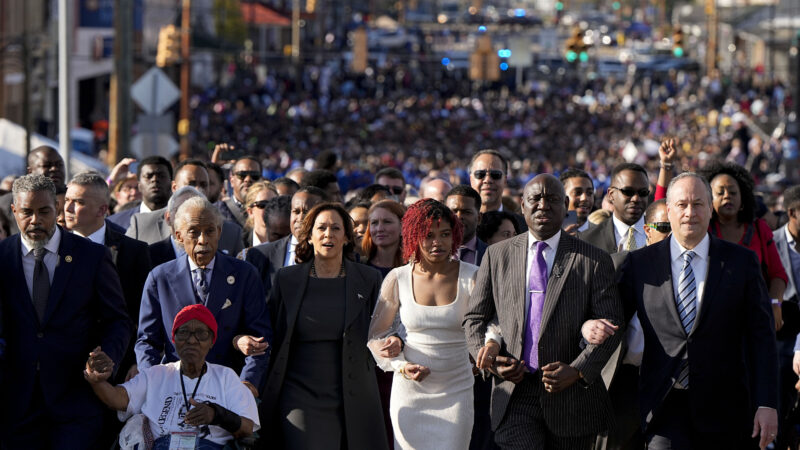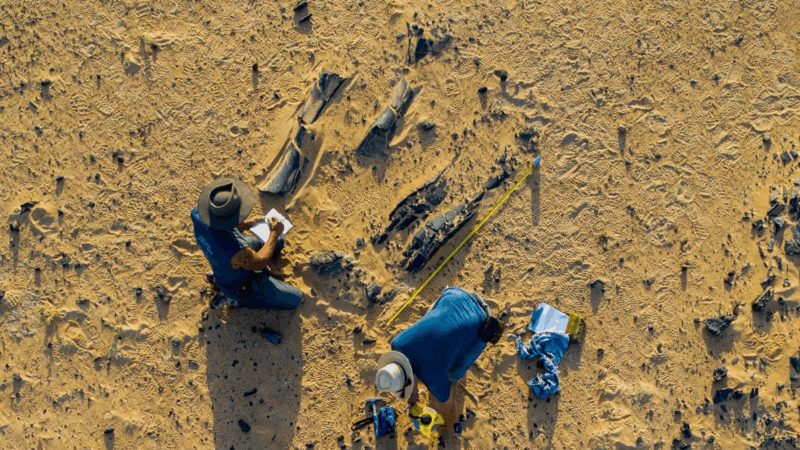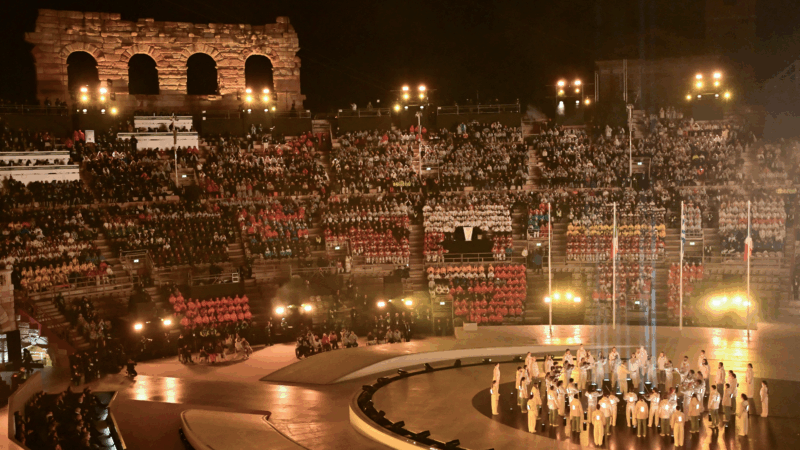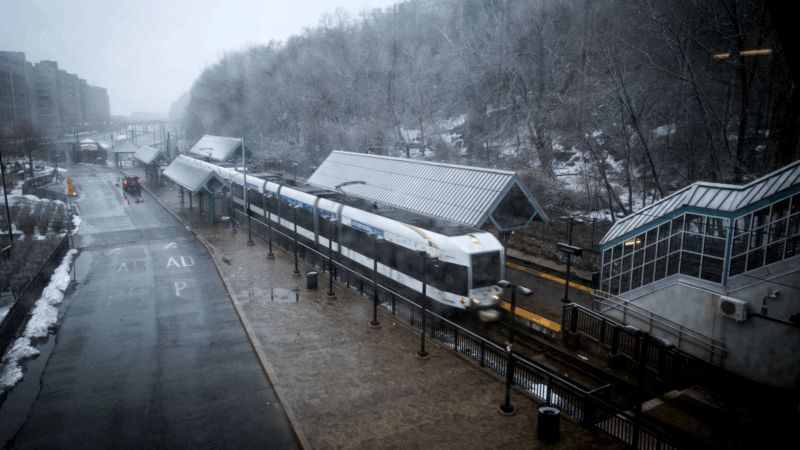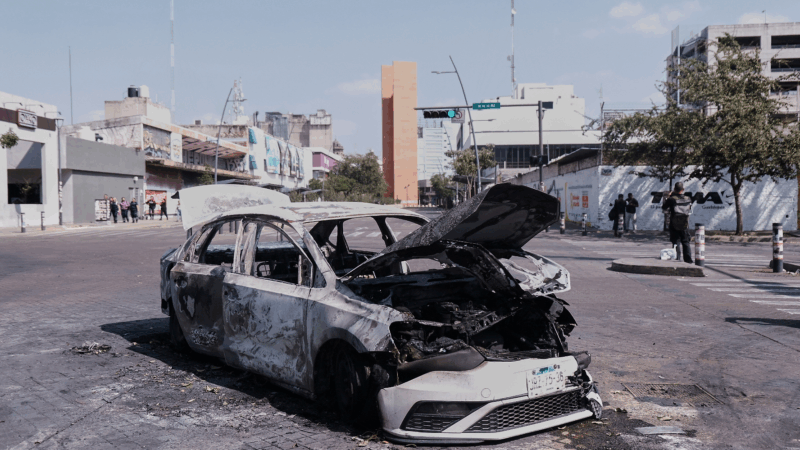Kamala Harris leads Bloody Sunday memorial as marchers’ voices ring out for voting rights
The Rev. Al Sharpton, Vice President Kamala Harris Attorney Ben Crump and the second gentleman of the United States Douglas Emhoff walk with hundreds of people across the Edmund Pettus Bridge with others commemorating the 59th anniversary of the Bloody Sunday voting rights march in 1965, Sunday, March 3, 2024, in Selma, Ala.
SELMA, Ala. (AP) — Vice President Kamala Harris told thousands gathered for the 59th anniversary of the Bloody Sunday attacks on civil rights marchers in Selma, Alabama, that fundamental freedoms, including the right to vote, are under attack in America even today.
Harris joined those gathered at the foot of the Edmund Pettus Bridge, where voting rights activists were beaten back by law enforcement officers in 1965. The vice president praised the marchers’ bravery for engaging in a defining moment of the civil rights struggle.
“Today, we know our fight for freedom is not over, because in this moment we are witnessing a full on attack on hard-fought, hard-won freedoms, starting with the freedom that unlocks all others, the freedom to vote,” Harris said.
She criticized attempts to restrict voting, including limits on absentee voting and early voting, and said the nation is again at a crossroad.
“What kind of country do we want to live in? Do we want to live in a country of freedom, liberty and justice? Or a country of injustice, hate and fear?” Harris asked, encouraging people to answer with their vote.
She paid tribute to the civil rights marchers who walked across the bridge in 1965 knowing they would face certain violence in seeking “a future that was more equal, more just and more free.”
Decisions by the Supreme Court and lower courts since 2006 have weakened the Voting Rights Act of 1965, which was passed in the wake of the police attacks in Selma. The demonstrators were beaten by officers on the Edmund Pettus Bridge on March 7, 1965, as they tried to march across Alabama to support voting rights.
Harris drew parallels between those who worked to stifle the Civil Rights Movement and “extremists” she said are trying to enact restrictions on voting, education and reproductive care.
She said other fundamental freedoms under attack include “the freedom of a woman to make decisions about her own body,” a reference to state abortion bans. She also stressed the Biden administration’s support for a six-week ceasefire in Gaza to “get the hostages out and a significant amount of aid in.”
Under a blazing blue sky, Harris then led the crowd across the Edmund Pettus Bridge in the march that concludes the annual commemoration. Thousands followed, sometimes singing hymns and anthems of the Civil Rights Movement including, “Ain’t Gonna Let Nobody Turn Me ’Round.”
Earlier Sunday, Attorney General Merrick Garland spoke at a Selma church service marking the anniversary of the attack by Alabama law officers on civil rights demonstrators. He said recent court decisions and certain state legislation have endangered voting rights in much of the nation.
“Since those (court) decisions, there has been a dramatic increase in legislative measures that make it harder for millions of eligible voters to vote and to elect representatives of their choice,” Garland told worshippers at Selma’s Tabernacle Baptist Church, the site of one of the first mass meetings of the voting rights movement.
“Those measures include practices and procedures that make voting more difficult; redistricting maps that disadvantage minorities; and changes in voting administration that diminish the authority of locally elected or nonpartisan election administrators,” he said. “Such measures threaten the foundation of our system of government.”
The march and Garland’s speech were among dozens of events during the Selma Bridge Crossing Jubilee, which began Thursday and culminated Sunday.
The commemoration is a frequent stop for Democratic politicians paying homage to the voting rights movement. Some in the crowd gathered to see Harris speak about the upcoming November election and what appears to be a looming rematch between President Joe Biden and former President Donald Trump.
Khadidah Stone, 27, part of a crowd gathered at the bridge Sunday in light rain before the march, said she sees the work of today’s activists as an extension of those who were attacked in Selma in 1965. Stone works for the voter engagement group Alabama Forward, and was a plaintiff in the Voting Rights case against the state that led to creating a second Alabama congressional district with a substantial number of Black voters. Voters will cast their first ballots in that district on Tuesday.
“We have to continue to fight, because they (voting rights) are under attack,” Stone said.
Nita Hill wore a hat saying “Good Trouble,” a phrase associated with the late Rep. John Lewis, who was beaten on the bridge during Bloody Sunday. Hill, 70, said it is important for Biden supporters to vote in November.
“I believe Trump is trying to take us back,” said Hill, a retired university payroll specialist.
Decades ago, images of the violence that at the bridge stunned Americans, which helped galvanize support for passing the Voting Rights Act of 1965. The law struck down barriers prohibiting Black people from voting.
U.S. Rep. James Clyburn, a Democrat of South Carolina who is leading a pilgrimage to Selma, said he is seeking to “remind people that we are celebrating an event that started this country on a better road toward a more perfect union,” but the right to vote is still not guaranteed.
Clyburn sees Selma as the nexus of the 1960s movement for voting rights, at a time when there currently are efforts to scale back those rights.
“The Voting Rights Act of 1965 became a reality in August of 1965 because of what happened on March 7th of 1965,” Clyburn said.
“We are at an inflection point in this country,” he added. “And hopefully this year’s march will allow people to take stock of where we are.”
Newly discovered dinosaur species was a fish-eater with a huge horn
The semi-aquatic dinosaur, Spinosaurus mirabilis, was discovered by an international team of scientists working in Niger.
Reporters’ notebook: The Olympics closing ceremony is way more fun than you’d think
Olympics opening ceremonies tend to get more love than their closing counterparts. But a pair of NPR reporters who watched both in Italy left with a newfound appreciation for the latter.
Northeast readies for a major winter storm, with blizzard warnings in effect
New Jersey through Massachusetts could see 2 feet of snow. New York City's mayor said the city had not "seen a storm like this in a decade."
Mexican army kills leader of Jalisco New Generation Cartel, official says
The Mexican army killed the leader of the powerful Jalisco New Generation Cartel, Nemesio Rubén Oseguera Cervantes, "El Mencho," in an operation Sunday, a federal official said.
Ukraine’s combat amputees cling to hope as a weapon of war
Along with a growing number of war-wounded amputees, Mykhailo Varvarych and Iryna Botvynska are navigating an altered destiny after Varvarych lost both his legs during the Russian invasion.
University students hold new protests in Iran around memorials for those killed
Iran's state news agency said students protested at five universities in the capital, Tehran, and one in the city of Mashhad on Sunday.

